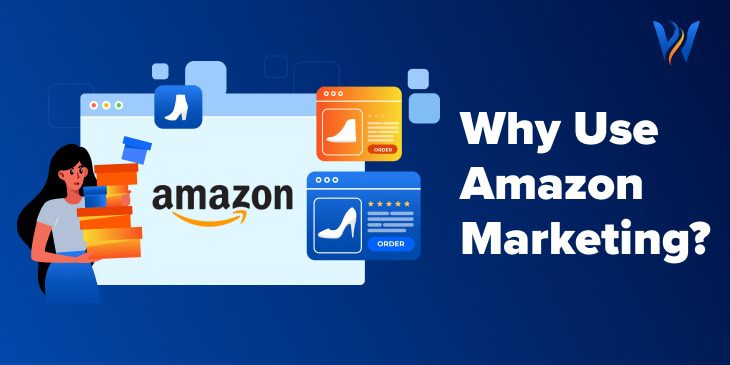Getting more patients to book appointments is a top goal for every doctor and healthcare provider. But how do people find you in the first place?
These days, most patients search online before they ever call a clinic. And this is when SEO enters the picture.
SEO, or Search Engine Optimization, helps your website show up on Google when someone types in things like “dentist near me” or “best eye doctor in [your city].” If your website doesn’t show up, you could be missing out on a lot of new patients.
In this post, we’ll walk through what SEO for healthcare industry really means, why it’s so important, and how it can help you grow your practice.
No matter if you’re a doctor, clinic manager, or run a hospital, you’ll learn simple, smart ways to improve your online presence and book more patients.
What is SEO For Healthcare?
SEO for healthcare is all about helping medical websites show up on search engines like Google. When people look for health services online, SEO makes sure they find you instead of someone else.
Here’s how it works in simple steps:
- Keywords: These are the words people type into Google, like “family doctor near me” or “urgent care in [city].” SEO helps your website include these words in the right places.
- Website quality: Google wants to send people to websites that are easy to use and have helpful info. A clean, fast website with clear content ranks better.
- Local focus: Most people look for local care. SEO helps you show up in local search results, like maps and city-based searches.
- Content: Posting useful blogs, tips, or FAQs can show you’re an expert. This helps your site get more visits over time.
- Reputation: Online reviews and trusted backlinks (links from other good websites) also boost your visibility.
So, if you’re a doctor or clinic, SEO helps more people find you online. And when they find you, they’re more likely to book an appointment.
This is what makes medical SEO a smart strategy for healthcare professionals.
Why Healthcare SEO Matters More Than Ever
Let’s be real—most people don’t open the phone book anymore. They Google everything. And that includes finding a doctor, dentist, therapist, or any healthcare service.
Here’s why SEO for healthcare professionals is more important than ever:
1. Most Patients Search Online First
Before calling your office, many people search online for answers. They want to know:
- What services you offer
- Where you’re located
- What other patients say about you
If your website doesn’t show up, they’ll likely call someone else.
2. More Competition in the Healthcare Space
There are more clinics and private practices than ever before. You need something to help you stand out. A smart SEO plan can give you the edge over competitors.
3. AI in Digital Marketing Is Changing the Game
Thanks to AI in digital marketing, search engines are smarter now. They look for helpful, trustworthy information. A strong SEO strategy helps your website meet those standards and stay ahead of the curve.
4. It Builds Trust Over Time
Good SEO doesn’t just bring clicks. It builds trust. When your site ranks high and offers helpful info, patients start to see you as reliable. That trust can turn into bookings.
5. You Don’t Have to Do It Alone
Many clinics team up with a healthcare SEO agency to handle this work. It’s okay to get help! These pros know how to get results and save you time.
The importance of SEO isn’t simply about traffic—it’s bringing in real patients who need your care.
What Are the Best Practices for Healthcare SEO?
If you want to show up higher in Google search results, there are a few smart things you can do. These steps are called best practices. They help your website become more visible, helpful, and trusted by both search engines and real people.
Here’s a simpler look at SEO for healthcare industry in 7 easy steps:
1. Use the Right Keywords
Start with the words your patients are already typing into search engines. These are things like:
- “pediatrician near me”
- “urgent care open now”
- “best dermatologist in [city]”
These words need to appear on your website naturally—in your homepage, service pages, and even blog posts.
For example, if your clinic offers allergy testing, make sure you mention “allergy testing” on your website. That way, Google knows what you do, and patients can find you.
This is a key part of SEO for what are the best practices for healthcare seohealthcare professionals.
2. Keep Your Website Fast and Mobile-Friendly
A slow or hard-to-use website can turn visitors away. And Google notices that.
✅ Compress images without losing quality
✅ Use responsive design (flexible grids, media queries)
✅ Minimize JavaScript and CSS files
✅ Enable browser caching
✅ Test with Google’s Mobile-Friendly Test
Here’s what you should check:
- Does your website load quickly?
- Is it easy to use on a phone or tablet?
- Can people find your address and phone number without digging?
If the answer is yes, you’re off to a great start. A healthcare SEO expert can also help test your site’s speed and design.
3. Create Helpful, Clear Content
You don’t need fancy words. Just helpful, clear information. Good content makes your site more useful to patients and improves your SEO.
Try writing:
- Simple explanations of your services
- Common health questions with short answers
- Blogs about tips, health news, or seasonal topics (like cold and flu season)
This kind of content helps show that you’re an authority in your field—and that’s a big part of medical SEO.
4. Use Local SEO Techniques
Most patients are looking for care nearby. So, your website should include your city name, neighborhood, or even nearby landmarks.
Here are a few ways to do it:
- Add your business to Google Business Profile
- Use your location in page titles and descriptions
- Mention your city or area in your content when it makes sense
This helps your practice show up in local searches and maps—right when people are searching for care.
5. Encourage Online Reviews
Reviews can build trust with new patients. They also tell search engines that your business is real and helpful.
Here’s how to do it:
- Ask happy patients to leave a review on Google or health review sites
- Make it easy by sharing a direct link in emails or text messages
- Respond to reviews politely, whether they’re positive or negative
Good reviews help your ranking, and they give people a reason to choose you.
6. Keep Your Info Up to Date
Search engines like websites that are fresh and accurate. Outdated phone numbers, old office hours, or missing services can hurt your ranking.
Make sure to:
- Update your website at least once a month
- Double-check your contact info
- Post new content or news when you can
If keeping up feels like a lot, that’s where a healthcare SEO agency can help manage things for you.
7. Track Your Progress
You won’t know what’s working unless you look at the data. This doesn’t have to be hard.
Use tools like:
- Google Analytics (shows how many people visit your site)
- Google Search Console (shows what people search to find you)
These tools help you see what’s working and what you can improve.
You can also ask a healthcare SEO expert to set up reports for you. They’ll explain it all in plain language, so you know what steps to take next.
Conclusion
The world has changed. People now search for healthcare the same way they look up restaurants or stores—online. That’s why SEO for the healthcare industry matters. It’s your chance to stand out, build trust, and help more patients find you.
From picking the right keywords to improving your website and writing helpful content, SEO is your digital front door. And when it’s open and welcoming, more people walk in.
If you’re ready to grow your practice with smart, effective SEO, WebIndia Inc. is here to help. Our team understands the healthcare space and knows what works.
Let’s get your website seen by the people who need you most.







